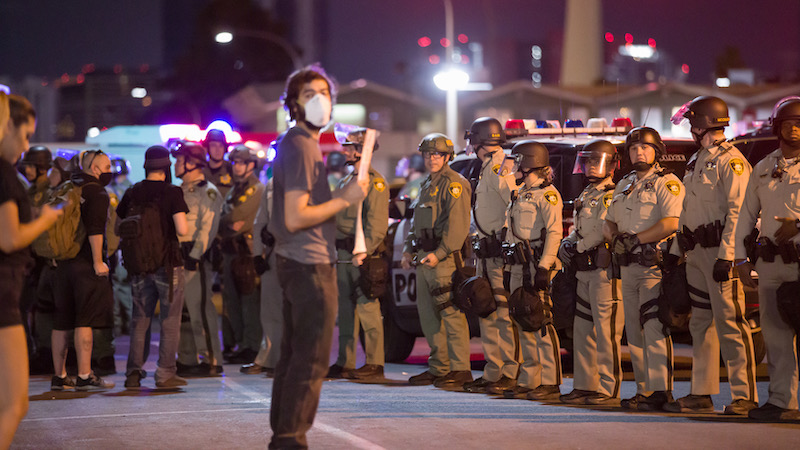
Last year, when “The Hunger Games” was released in theaters, we published “Five Books You’ll Love if You Liked the Hunger Games.” The very first book on that list was “Ender’s Game” by Orson Scott Card, and with “Ender’s Game” debuting in theaters today, we wanted to give you a few more books to love. My reasoning for why fans of “The Hunger Games” would like “Ender’s Game” is that they had much more to learn from Card’s version of a totalitarian military regime a few hundred years in the future forcing children to fight in “games.”
While the setting seems similar, I felt “The Hunger Games” trilogy missed many opportunities to have the kind of meaningful message “Ender’s Game” delivers. Card masterfully describes a dystopian world in his 1985 novel, and does so with a touch of aliens. His ability to predict the evolution of technology, and specifically the internet, is absolutely phenomenal. And for those of you disappointed in how “The Hunger Games” trilogy ended, Card’s shocking ending to “Ender’s Game” will surely make you believe in the power of stories again. This book is a Nebula Award winner, a Hugo Award winner, and my personal favorite.
Why bother reading books in this genre? Personally, I think it is important for young readers to be familiar with the world of dystopian literature because it displays human nature in a uniquely terrifying way. It shows us the hell that our sinful condition has the potential to create, as a warning for us to take intentional action towards a better future. It provides a new framework for our thinking, as in the famous paradigm shift from “Ender’s Game”:
“Remember,” said Ender. “The enemy’s gate is down.”
Here are five similar novels which I highly recommend, in no particular order:
1) “Speaker for the Dead” By Orson Scott Card

“Speaker for the Dead” is the second book in the Ender Quartet, and follows a trajectory established in the last chapter of “Ender’s Game,” which is also titled “Speaker for the Dead.” Normally I might consider it cheating to simply name the next book in a series as a must read, but this book is so distinct from its predecessor, and yet equally exciting, that it has earned its place on this list.
Critics consider “Speaker for the Dead” to be “less brash” than “Ender’s Game,” and it focuses on Ender as a healer and a peacemaker, rather than a brilliant military commander. While this book could absolutely be read without having read “Ender’s Game,” his search for peace is influenced in a powerful way by what he experienced in the Battle Room. The evolution of Ender leads to a compelling conclusion, and if this book interests you, there are a total of eight books – or sixteen, depending on how you count them. As with its predecessor, this book won both the Nebula Award and the Hugo Award.
2) “Martian Chronicles” by Ray Bradbury

Ray Bradbury is best known for a book most of us read in high school, “Fahrenheit 451,” but his collection of Martian tales is definitely a cult favorite. Bradbury had an affinity for our Red Neighbor, and was known to refer to himself as “the Baptist Martian.” This short novel began as a collection of short stories which coalesced around somewhat of a plot, resulting in powerful bursts of storytelling. This book is perfect to read if you only have a few minutes here and there, but I read it in a single sitting.
I highly recommend it to fans of “Ender’s Game” because it captures a similar sense of foreboding of the unknown that Card threaded throughout his novels. The aliens are very foreign, but in a way, very human—which makes the clash between humans and Martians much more frightening. In many ways, Bradbury’s style is similar to the intensely unsettling Edgar Allen Poe, which makes it a great read in the Halloween season.
3) “Timescape” by Gregory Benford

This novel was recommended to me by a friend, to whom I am forever grateful for introducing me to the prodigious Gregory Benford. After finishing “Timescape,” I’ve snatched up all of Benford’s work I can (preferably first-edition finds at used book stores). “Timescape” is an absolute thriller; reading it, one forgets that that they are actually consuming a significant amount of hard science. Benford’s background as anastrophysicist at the University of California, Irvine, makes his explanation and incorporation of science and technology unmatchable. This is also what makes it so attractive to fans of “Ender’s Game.”
“Timescape” is a great introduction to the worldview of Benford, which might draw readers in to further reading as it did with me. A modern renaissance man, Benford is also a contributing editor of Reason Magazine, and has many interesting thoughts for young free marketers.
4) “The Moon is a Harsh Mistress” by Robert Heinlein

One of the sub-themes of “Ender’s Game,” which to some is as loved as the main plot, is the political intrigue of Peter and Valentine. If this was of interest to you, I highly recommend “The Moon is a Harsh Mistress” by Robert Heinlein which is one of the most influential science fiction novels of the last century. Heinlein understands the United States Constitution and the free enterprise system which has made America the land of the free with breath-taking clarity and conviction.
The conflict which drives this dystopian novel is against a totalitarian government rather than invading aliens, if extra-terrestrials aren’t quite your thing. As one blogger puts it, this novel is “carefully plotted, stylistically unique, politically sophisticated and thrilling from page one, it’s hard to imagine anyone else writing a novel that packs so many ideas (both big and small) into such a perfectly contained narrative.” I couldn’t agree more!
5) “The Time Ships” by Stephen Baxter

The last book recommended for Hunger-fans last year was “The Time Machine” by H.G. Wells. No other work can compare with the paradigm shift introduced with this science fiction thriller in 1895. H.G. Wells is an author little read today, but one who has had an immeasurable impact on authors throughout the 20th century, and whose literary bloodline can be traced through all of the other authors mentioned on this list: Orson Scott Card, Ray Bradbury, Gregory Benford, Robert Heinlein, Stephen Baxter, and even faintly with Suzanne Collins.
“The Time Ships” is an unofficial sequel to this pillar of science fiction. Much longer than its predecessor (“The Time Machine” is a light 118 pages, while “The Time Ships” weighs in at 520 pages), Baxter’s tribute is worth ever word. The story takes the reader backward and forward through time to the far reaches of antiquity and futurity, in a journey that captures Well’s unique adventurism. With a similar projection of science and technology as well as the mental stretching and re-framing felt with Ender in the Battle Room, I highly recommend it to fans of “Ender’s Game.”
What books would you recommend to fans of “Ender’s Game”? Please share in the comments!


